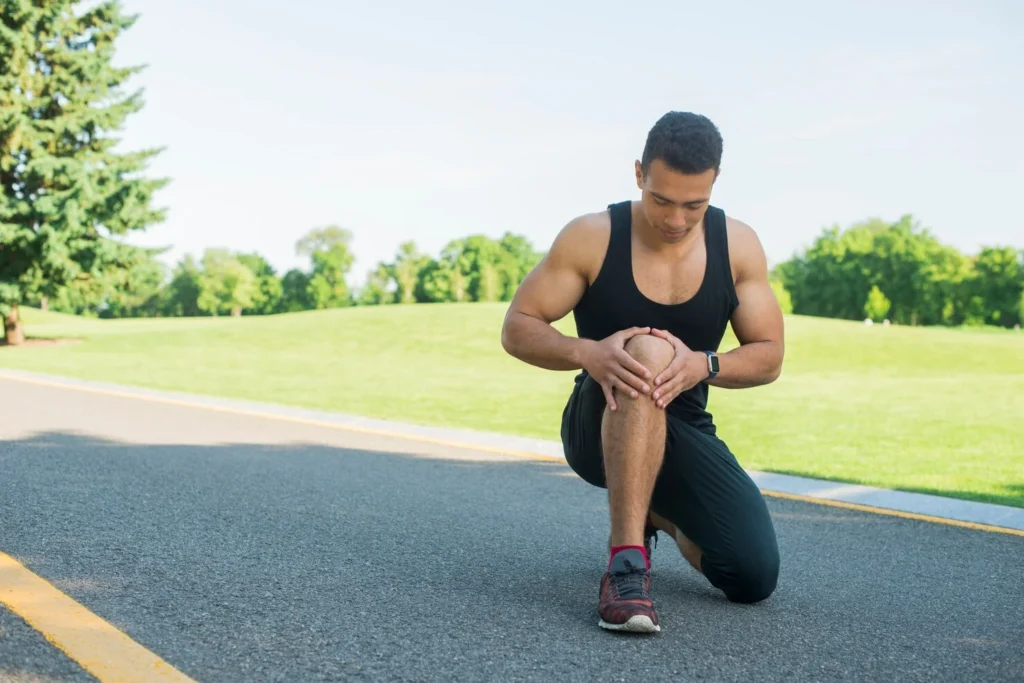Leg cramps can be unpleasant and sudden, causing discomfort and pain, often in the middle of the night or during physical activities. But have you ever wondered what exactly causes these painful muscle contractions and how they can be prevented or treated effectively? In this article, we’ll explore the common causes of stiffness, their symptoms, preventive measures, and the benefits of using cramp relief capsules for those seeking fast relief.
How to Stop Leg Cramps Immediately
If you’ve ever experienced a leg cramp, in such a case one of your first thoughts is probably, “How to stop leg cramps immediately?” Leg cramps, also called as “Charley horses,” are sudden, involuntary contractions of the muscles, mainly in the calves, thighs, or feet. These cramps can cause lingering discomfort even after the stiffness has subsided.
Stretching, hydration, and cramp relief capsules are effective methods to stop stiffness immediately. Understanding the causes behind leg cramps can help you address the issue more efficiently. Explore why stiffness occurs and how it can be prevented.
1. Dehydration and Electrolyte Imbalance
One of the most common causes of stiffness is dehydration. When your body doesn’t have enough water, it struggles to balance electrolytes like sodium, potassium, and magnesium, which are vital for proper muscle functioning. Athletes, in particular, are susceptible to dehydration-induced stiffness, especially after intense workouts or exercise sessions in hot weather. Drinking water and consuming electrolyte-rich foods or drinks can help prevent this stiffness.
2. Overuse or Strain on the Muscles
Another common cause of leg stiffness is muscle overuse or strain. Engaging in strenuous physical activities, mainly if you’re not accustomed to them, can lead to muscle fatigue and cramping. This is often seen in runners, cyclists, or individuals who spend long hours on their feet. Inadequate warm-ups or overstretching can also trigger stiffness. It’s essential to properly stretch and warm up before any physical exercise to prepare your muscles for exertion and prevent stiffness from occurring.
3. Poor Circulation or Nerve Compression
Poor circulation can lead to stiffness, especially in individuals with peripheral artery disease (PAD) or other circulatory conditions. Reduced blood flow to the legs deprives the muscles of oxygen and nutrients, making them more prone to cramping. Nerve compression, such as sciatic nerve irritation, can cause stiffness. Compressed or pinched nerves can cause pain and muscle contractions, often felt in the legs. Addressing underlying circulation or nerve issues can reduce the frequency of cramps.
4. Nutritional Deficiencies
A lack of essential minerals like magnesium, calcium, and potassium in your diet can also lead to frequent stiffness. These minerals are necessary for proper muscle function, and their deficiency can increase the likelihood of muscle spasms. Having food rich in these nutrients, such as bananas (potassium), leafy greens (magnesium), and dairy products (calcium), can help prevent stiffness. In some cases, taking supplements or stiffness relief capsules that contain these vital minerals can be an effective solution.
5. Medical Conditions and Medications
Medical conditions, including diabetes, kidney disease, and thyroid disorders, can contribute to the occurrence of leg cramps. Additionally, medications such as diuretics, statins, and asthma treatments may have cramping as a side effect. If you are encountering stiffness due to an underlying medical condition or medication, it’s essential to consult with your healthcare expert to understand the best course of action.
Symptoms of Leg Cramps
The sharp, sudden pain in the leg muscles easily identifies leg stiffness. Common symptoms include:
- Sudden muscle tightness or spasms in the calf, thigh, or foot
- Pain that lasts a few seconds to several minutes
- Hardening of the muscle during the stiffness
- Residual soreness or discomfort in the muscle after the stiffness subsides
Leg cramps can occur anytime but are most common during physical activity or at night, often disturbing sleep.
Advantages of Taking Cramp Relief Capsules
- Fast-Acting Relief: Cramp relief capsules quickly stop muscle spasms and relieve painful leg stiffness.
- Replenishes Electrolytes: Many cramp relief capsules contain essential electrolytes like magnesium and potassium, which are critical for maintaining healthy muscle function.
- Convenient and Easy to Use: Capsules are easy to take and can be carried on the go, making them a convenient solution for unexpected stiffness.
- Prevents Recurrence: Regular use of cramp relief capsules may help prevent the recurrence of stiffness by addressing the underlying causes, such as mineral deficiencies.
- Natural and Safe: Many stiffness relief capsules are made with natural ingredients, providing a safe option for managing muscle cramps without unwanted side effects.
Regarding how to stop leg cramps immediately, stiffness relief capsules offer a fast, convenient, and effective solution. Leg cramps can be caused due to many reasons. By taking precautions, individuals can reduce their chances of experiencing stiffness. Additionally, incorporating stiffness relief capsules into your routine can provide immediate relief and long-term prevention, ensuring that stiffness doesn’t interfere with your daily life.







